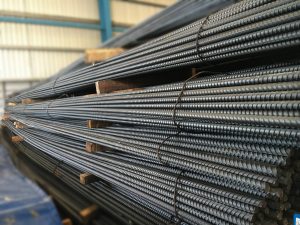Substandard rebars sold in Mindanao, Luzon – PISI
THE Philippine Iron and Steel Institute (PISI) said that results of its test-buy operations show that substandard rebars, enough to build more than 10,000 houses per month, are being sold in Luzon and Mindanao. “The steel industry had found substandard rebars in random test buys in Mindanao last September, just a few weeks after finding […]

THE Philippine Iron and Steel Institute (PISI) said that results of its test-buy operations show that substandard rebars, enough to build more than 10,000 houses per month, are being sold in Luzon and Mindanao.
“The steel industry had found substandard rebars in random test buys in Mindanao last September, just a few weeks after finding the same problem in its July test buys in Northern Luzon,” PISI said in a statement sent over the weekend.
“Based on the information gathered from the test buys, the inferior rebars are enough to build more than 10,000 houses per month, putting at risk up to 30,000 people,” it added.
With the findings, PISI said it has asked the Department of Trade and Industry (DTI) to conduct a surveillance audit of the companies involved.
PISI has been conducting the test buys in coordination with the DTI.
According to PISI, it bought rebars from hardware stores in Davao del Sur, Davao del Norte, Maguindanao, Lanao del Sur, Lanao del Norte, Zamboanga del Norte, Samal Island, Cotabato City, Pagadian City, and Iligan City from Sept. 9-13.
“The Mindanao rebars failed to meet the minimum standard requirements for weight and are prone to brittleness,” PISI said.
“These were the same findings for the Northern Luzon rebars that were tested by the Bureau of Philippine Standards Testing Laboratory in Cavite,” it added.
Earlier this year, PISI also ran test buys in North Luzon, wherein it bought 33 samples from 16 hardware stores in Pampanga, Nueva Ecija, Tarlac, Pangasinan, La Union, Ilocos Sur, Ilocos Norte, Cagayan, Isabela, and Nueva Vizcaya.
During which, PISI found 13 of the samples substandard, failing to meet the minimum standard requirements for mass variation and elongation. — Justine Irish D. Tabile
















